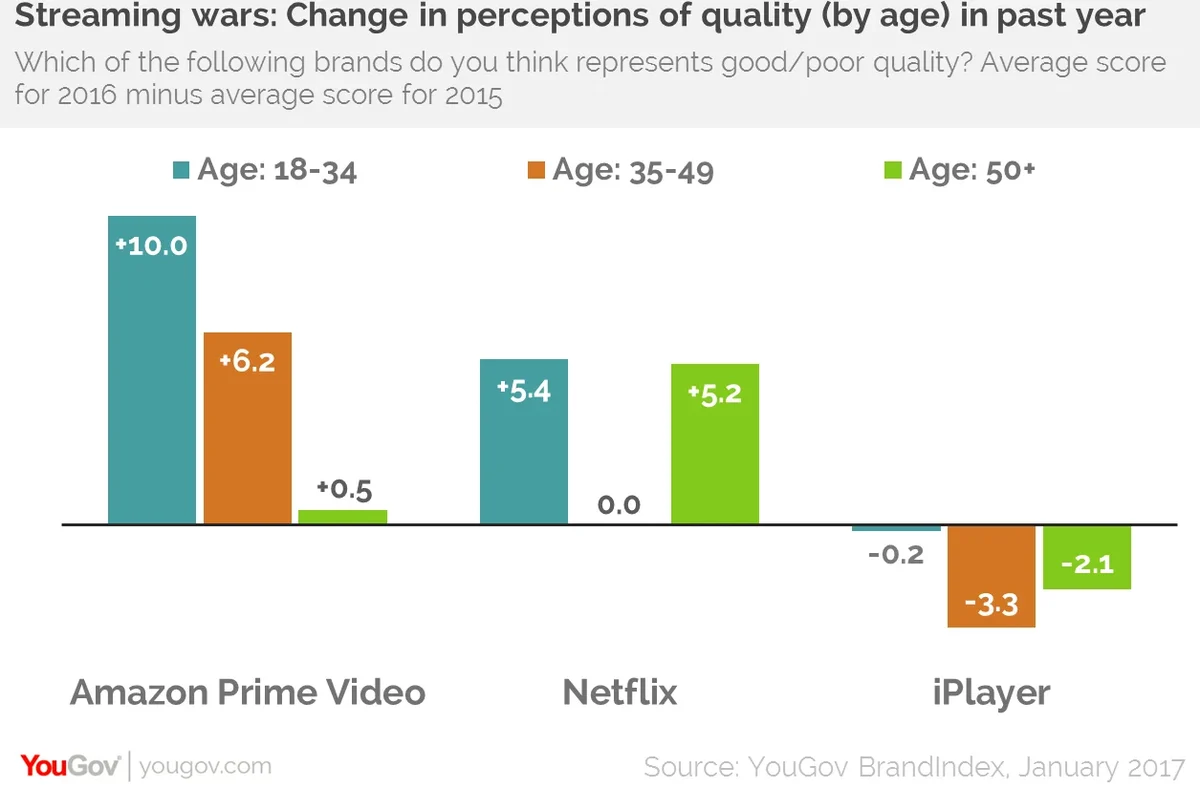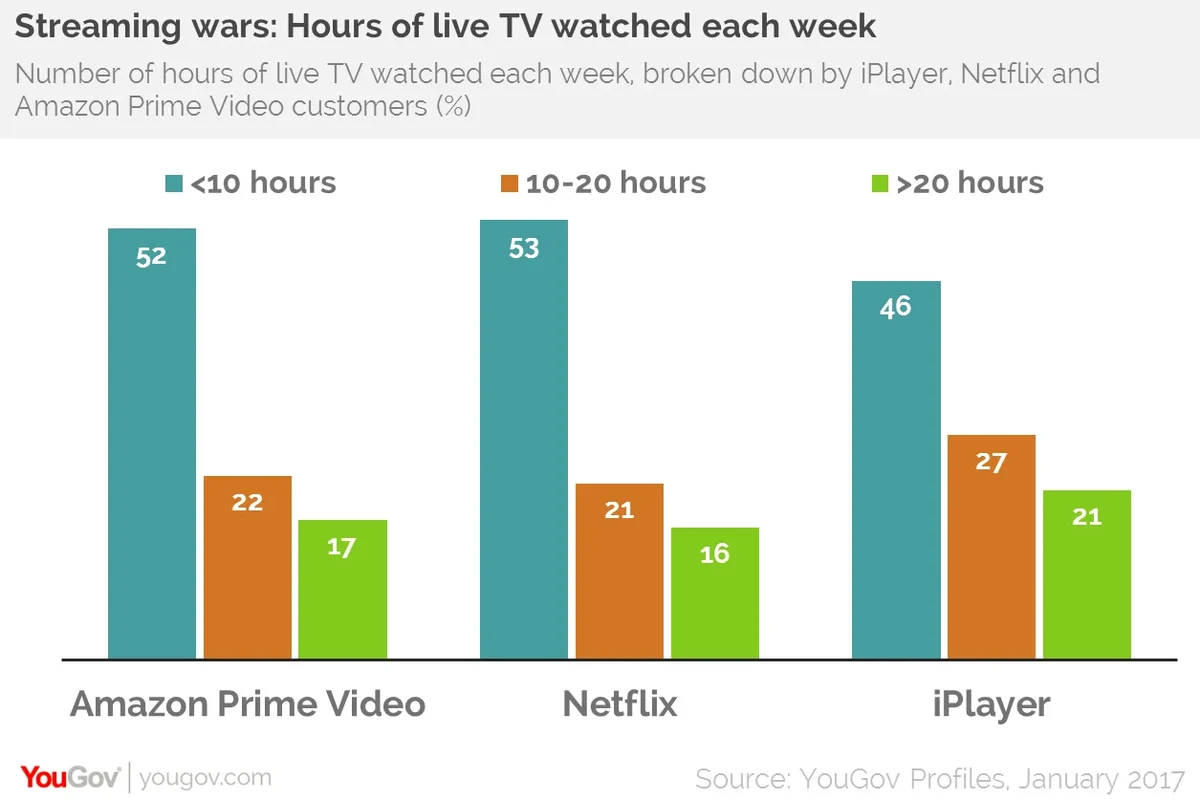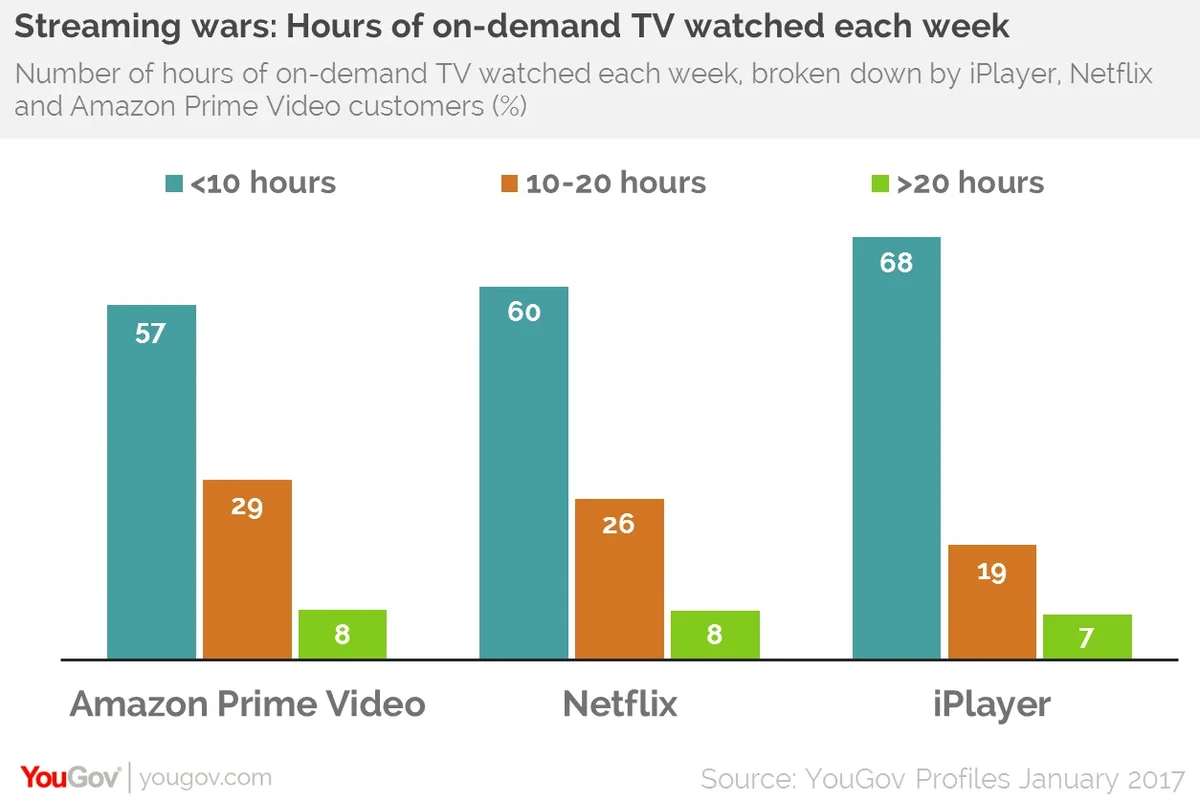As the streaming wars intensify, iPlayer will have to stop treading water and start making waves
The battle of on-demand streaming television services continues to intensify. In the past couple of weeks, Netflix announced a big increase in subscribers and the BBC has unveiled ambitious plans for iPlayer in a bid to make sure it doesn’t fall behind its commercial rivals.
Premium on-demand services are making inroads into the BBC’s territory. YouGov’s latest BrandIndex buzz rankings for the most positively talked about brands shows that while iPlayer maintains its position in third place, Netflix is a new entry at seven. That the BBC’s streaming service is so high in the rankings is to be expected – it has been a mainstay of the top ten in recent years. But of concern to the corporation is that an online commercial rival is posing such a serious challenge to it.
In the past year especially, Netflix and Amazon Prime Video have made their mark in the UK. With big-budget original content blockbusters such as the Crown and The Grand Tour, both have firmly established themselves as content creators as well as providers. The public has started to take notice and our evidence suggests that they like what they see.
YouGov BrandIndex data suggest that the BBC is treading water while Amazon and Netflix are starting to make waves. Certainly, iPlayer currently has more users than either of their rivals and, being tied to the BBC, has a very well-established brand identity. Furthermore, its overall scores among its own customers are currently above its commercial rivals
However, when we look at the changes in perception of the three services across the past year among their current customers it is evident that iPlayer is not making as much progress its competitors. Across perceptions of value, satisfaction and quality, the corporation’s service saw declines among all ages in 2016, while, largely speaking, Netflix and Amazon Prime Video saw improvements.
When it comes to assessing the direction of travel, it seems iPlayer is going one way while its rivals are going the other.

Given both commercial services’ commitment to produce even more high-quality, big budget content in the year ahead, the challenge to the BBC is not going to go away any time soon. But the threat is not so much from any one brand. The issue is broader than that and comes down to how people take their telly - traditional TV versus streaming/on-demand.
Our data shows that iPlayer viewers are more likely to be heavy watchers of live TV while Amazon Prime Video and Netflix customers are more likely to be lighter grazers. While 46% of iPlayer viewers watch under 10 hours of live television a week, this number rises to 52% and 53% of Amazon Prime Video and Netflix customers respectively. However, 48% of iPlayer viewers watch over ten hours a week compared to 39% and 37% of Amazon’s and Netflix’s customers.

Given this, is it perhaps unsurprising that Amazon and Netflix subscribers are far heavier consumers of on-demand TV while iPlayer viewers are more likely just to dip their toes in to streaming. Naturally, many – if not all – Amazon and Netflix customers will also use iPlayer as well which will, if anything, will slightly inflate iPlayer viewers’ streaming habits. However, even with this taken into account, well over a third of Amazon and Netflix users watch over ten hours of on-demand TV each week, while the same is true for only around a quarter of iPlayer viewers.

Although there is no absolute way of predicting these things, it would be a surprise over the coming years if the tide turned and people started watching more live TV again and less on demand. And this is the crux of the BBC’s issue and why it has made a strategic decision to stand toe-to-toe with Amazon and Netflix when it comes to iPlayer and the way it delivers content.
One mitigating factor of course is that of impending change to the licence fee, and how it is implemented. Currently, it is possible for those without a valid license to access iPlayer services. Should this change, the BBC may need to think of a new pricing structure for those that predominantly stream programmes, in order to maintain viewership levels.
Given the rise in subscriptions to the commercial services and their improvements in public perception on things like quality, value and satisfaction, it may be that we see 2016 as the year when on-demand services moved firmly to the mainstream. The question now is whether 2017 is the year the mainstream BBC can reverse this momentum and give Netflix and Amazon customers a service worth switching over for more regularly.
Find out more about YouGov BrandIndex
Find out more about YouGov Profiles
Image from PA







